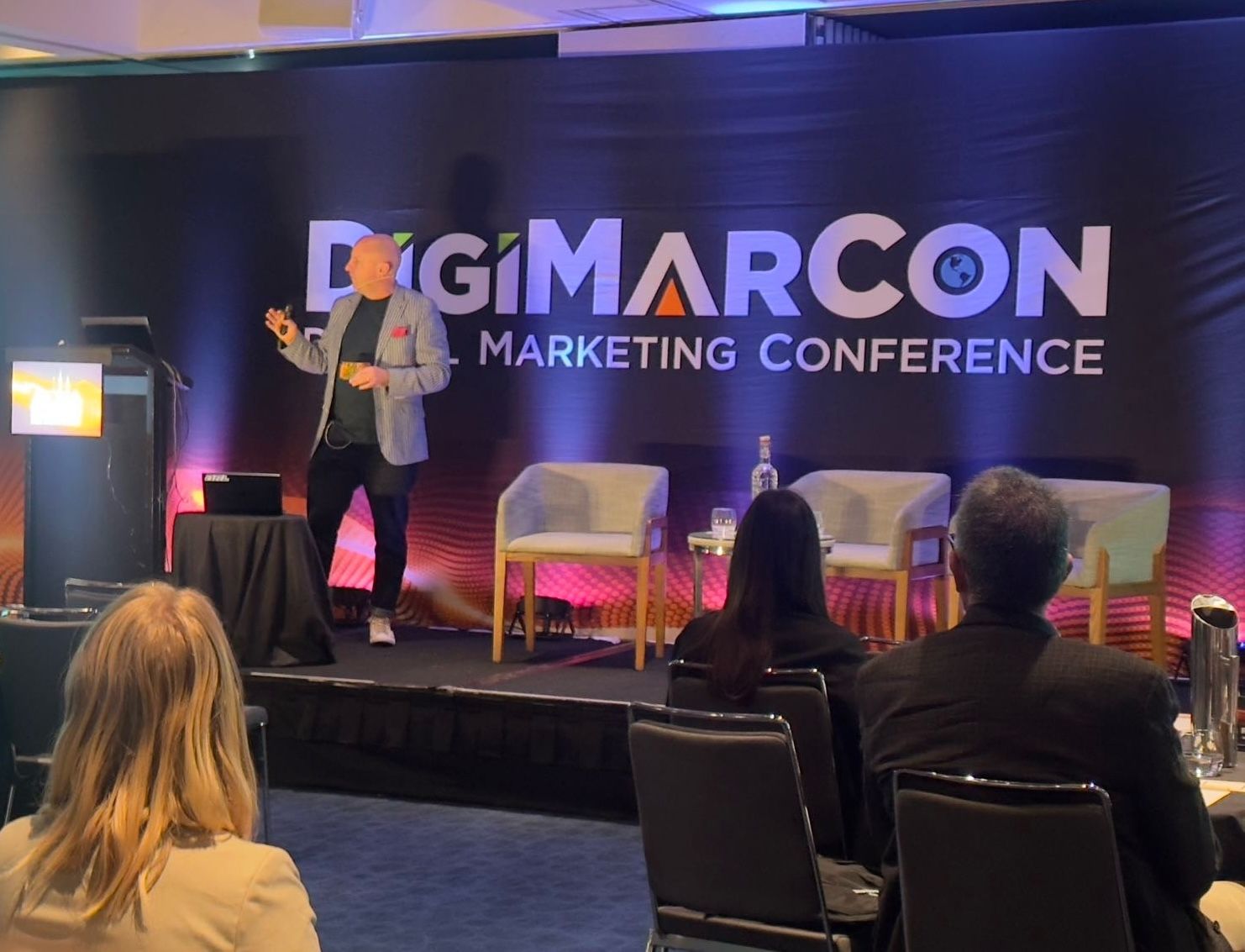The number one reason people reach out to us is to help them grow revenue through lead gen, not brand or trust.
Most business leaders are astute problem solvers who usually come to us with diagnosis and (their own) solutions together. Instead of “we want a more consistent pipeline” it’s often “we have a problem with lead generation”.
In his book, Getting Naked: A Business Fable about Shedding the Three Fears That Sabotage Client Loyalty, Patrick Lencioni discusses the importance of telling business owners a “kind truth.”
A core concept is that embracing vulnerability, even when it means delivering difficult truths, builds stronger client relationships.
We’re big Lencioni-heads here at Europa Creative Partners, so when we get under the hood of a customer looking for a more robust pipeline, we frequently find that the problem isn’t lead generation and we have to tell them. It’s often two, closely related concepts: lack of trust and brand equity.
And this is almost always NOT the business’ fault. Why?
Did the marketing guy just say “brand” in relation to sales?
I totally get why you may have eye-rolled when I said that “trust and brand” is the problem, not lead gen. It’s a very marketing thing to say. But we’re living in a new era where brand and trust are becoming even more critical to sales. And they’ve ALWAYS been critical to sales.
Here’s why it’s happening in the moment that we’re living in.
If you run a business, chances are your inbox is a flood of cold pitches, automated follow-ups, and templated LinkedIn messages promising more leads, higher conversions, or “done-for-you” growth hacks. (I am one of those people!)
AI is not helping; all our channels are filling up with AI slop. (Note: I’m a pragmatic optimist in AI, but being pragmatic means being clear-eyed about its downsides).
Fatigue is impacting trust
We’re drowning in digital noise. B2B decision-makers, the people you want to sell to, are tuning out, dodging sales calls, and ignoring anything that remotely resembles an automated marketing funnel, probably whilst their marketing and sales team are doing the same thing.
This isn’t a lead generation problem. This is a trust problem.
Why buyers don’t trust B2B marketing anymore
In theory, we’re in the golden age of B2B marketing. More channels, more data, more tools. But something is broken.
Decision-makers are overwhelmed and don’t want another cold email “just checking in.”
Digital fatigue is real. The average B2B buyer sees a lot of sales messages daily.
- Trust is at an all-time low. Everyone has been burned before, so skepticism is the default setting.
Even if your business is the perfect fit for a prospect, they hesitate because they don’t know if you are credible, if you will deliver, or if you are just another vendor with an aggressive sales funnel.
The long vs. the short: why marketing is out of balance
Les Binet and Peter Field studied thousands of marketing campaigns over 30 years in The Long and the Short of It. They were instrumental in underlining a crucial insight: brand (and trust) are critical to the long term success of your business and sales.
For them, there were two types of marketing, with the following results:
| What | Tactics | Result |
| Short term marketing (“sales activation”) | Performance ads, cold outreach, direct response campaigns | Drives quick wins |
| Long term brand marketing (“brand building”) | Thought leadership, credibility-building, reputation | Delivers bigger, more sustainable revenue growth |
Most B2B companies over-invest in short-term tactics, assuming that generating enough leads automatically results in sales. But Binet and Field’s research found that:
- Brand-building efforts improve conversion rates by 20 to 30 percent over time.
- Short-term lead generation tactics alone create diminishing returns within six to twelve months.
- The best-performing companies invest about 60 percent in brand and 40 percent in performance marketing.
- Sometimes, for B2B brands, it’s more like 50/50.
“Brand building…is a long term job involving conditioning consumers through repeated exposure.” Peter Field
If you only invest in sales activation, you are constantly chasing demand instead of creating it. The businesses that win are the ones buyers already trust before the sales conversation starts.

(c) Les Binet and Peter Field. From The Long and The Short of It.
How brand trust makes sales easier and faster
Most founders and business leaders think marketing is about getting more leads. But they’re missing its most powerful role: marketing is about reducing friction in sales.
When trust is high, everything gets easier:
- Deals close faster. Binet and Field’s research shows that strong brands reduce the average sales cycle by 27 percent.
- Conversion rates increase. Prospects do not need convincing—they already believe in you.
- Pricing pressure decreases. Trusted brands win deals even when they are not the cheapest option.

(c) Les Binet and Peter Field. Brand building allows you to capture longer term prospects and a sustainable pipeline.
HubSpot’s long-game approach to brand trust
It’s a big beast these days, but HubSpot did not become one of the world’s leading CRM / CMS because they ran the most ads. They built their business by publishing ungated educational content for years before many customers were even ready to buy.
Instead of aggressive outbound sales, they invested in thought leadership: SEO, blogs, free tools, and reports. This built massive credibility, so when prospects finally needed a CRM, HubSpot was the obvious choice.
Their organic (non-paid attraction via social media or search) traffic now drives hundreds of millions in annual revenue because they created demand before selling.

Choosing the right channels is critical. Don’t forget the real-world stuff like speaking opportunities.
How to build trust without wasting money on fluff
Most B2B brands struggle with brand building because they think it involves fluffy LinkedIn posts and expensive awareness campaigns. This is not true.
Here’s what works. Focus on being where your buyers already look for answers. That means:
- Showing up in industry podcasts, events, and expert panels (Founder-led marketing)
- Investing in SEO and evergreen content that helps customers, not just selling to them.
- Creating valuable insights that showcase your expertise without a sales pitch.

You need to talk to where your customer’s interests overlap with your benefits and story
Your future customers don’t care about your features and benefits.
We need to put our agenda aside and put our (future or current) customer’s agenda at the heart of our content marketing efforts.
Even though we are keen to discuss our vision, skills, and the benefits they confer, we need to suppress the urge. Our prospects or customers couldn’t care less.
They want to discuss their problems, challenges, opportunities, and the very real obstacles that stand in their way.
Our content needs to talk to their issues.
“Where your sweet spot meets customer pain points is where the truly valuable stories are.”Joe Pulizzi
Nobody wants to hear about your “cutting-edge solution.” They want to hear about how businesses like theirs solved a problem they have.
- Thought leadership is not about your business, it is about their business.
- Lead with value, not a sales pitch. Prospects will connect the dots themselves.
- Show, don’t tell. Customer success stories are more powerful than feature lists.
Measuring trust: what actually matters
But how do you measure it? How do you avoid so-called vanity metrics? Clicks, downloads, and form fills do not tell you if people actually trust your brand.
Instead, track:
- Brand search volume: are more people searching for you by name?
- Inbound referral traffic: are customers and partners sending people your way?
- Sales cycle length: is trust making deals close faster?
- Customer retention: are people staying longer and spending more?
If your marketing is not making sales easier, you do not have a marketing problem—you have a trust problem.
Play the long game, win bigger
In B2B, the brands that win do not shout the loudest.
They are the ones that buyers already trust when they are ready to make a decision. The best businesses do not have to chase customers. Customers come to them.
And the secret to making that happen?
Stop selling. Start earning trust. Invest in brand.






